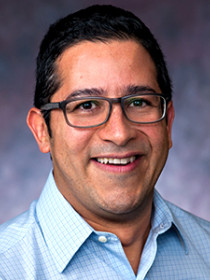
Ernesto Castaneda
Connect with Ernesto
About Ernesto
Castañeda is Associate Professor of Sociology at American University in Washington, D.C. He is the director of the Immigration Lab. He has conducted surveys and ethnographic fieldwork in the United States, France, Spain, Switzerland, Mexico, Algeria, and Morocco. Castañeda is interested in the relation between the contexts of immigrant reception, including the avenues available for political voice, and the political inclusion of immigrants and minorities. His ongoing research projects compare different metropolitan areas along the US-Mexico border, address Hispanic Health Disparities, look into the causes of homelessness, and examine the link between migration and mental health.
Contributions
In the News
Publications
Proposes ways that local communities can support immigrant youth and their families, in and out of schools.
Studies the journey of immigrant children from El Salvador, Guatemala, and Honduras, discussing their motives for migration, and experiences on the journey through Mexico.
Mentions the ways in which immigrant minors from Central America have been exposed to trauma, and how it affects their day-to-day lives in the United States.
Highlights results from our recent survey of public housing residents living in the U.S. Mexico border region. Informs our interdisciplinary (public health, education, environmental engineering, sociology) efforts to improve health and educational equity in our community, and provide ripe opportunities for policy advocacy.
Measures mental illness among individuals experiencing homelessness in a border city and compares it to the general housed population. Uses original data from a homeless survey conducted in El Paso, Texas.
Puts the recent calls to build a border wall along the US-Mexico border into a larger social and historical context. Describes the building of walls, symbolic and physical, between Americans and Mexicans, as well as the consequences that the walls have in the lives of immigrants and Latin communities in the United States. Provides a sophisticated analysis and empirical description of racializing and exclusionary processes.
Explores point in time methodology focusing on visible street homeless individuals and those in shelters while neglecting the “marginally housed” or less visible homeless who live in automobiles or temporarily stay with friends and extended family. Explains how they replicated HUD’s PIT count, but additionally targeted the marginally housed to improve traditional methods of counting the homeless in various ways.
Explains he general processes of migration, the categorization of newcomers in urban areas as racial or ethnic others, and the mechanisms that perpetuate inequality among groups.
Discusses the American sociologist Charles Tilly. Connects Tilly's work on large-scale social processes such as nation-building and war to his work on micro processes such as racial and gender discrimination. Provides a road map to Tilly's work and his contributions to the fields of sociology, political science, history, and international studies.
Attempts to estimate the prevalence of substance use among Hispanics in El Paso and to determine the association between substance use and immigrant generation. Shows that the rates of tobacco, marijuana, and illicit drug use were lower among young adults in El Paso.
Examines the Emergency and Transitional Shelter Population (ETSP) with the help of the BAH Calculator —which includes what are commonly referred to as “homeless” people.
Compares Hispanic and non-Hispanic homeless populations in El Paso, Texas, collected in “traditional homeless spaces” as well as in non-traditional spaces where Hispanics may be more heavily represented. Finds Hispanics to be underrepresented when compared with the general population of El Paso.
Discusses how protestors during the Occupy movement in El Paso, Texas, argued that the homeless exemplified an important segment of the 99%, which gave the homeless people a different identity. Elaborates on how homeless people even credit the activities they carried with the Occupy El Paso movement for helping them recover from addiction and their eventual attainment of housing.
Looks at French public housing neighborhoods in relation to American Ghettos and Barrios.